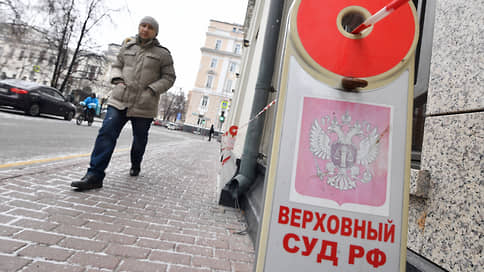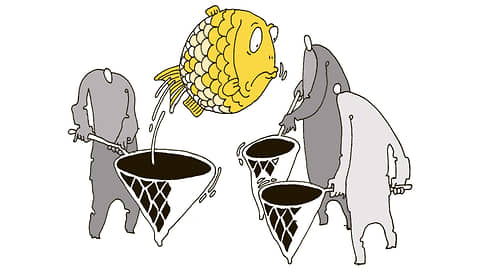The Supreme Court strengthened the responsibility of the heads of the abandoned business

The Supreme Court of the Russian Federation (BC) ruled that the heads of the abandoned business are obliged to explain the reasons why the company's creditors did not receive funds. Previously, a similar position was expressed in relation to liquidated legal entities, but now the economy of the All -Union Rosa has extended conclusions to the abandoned business. The director of such an enterprise did not provide documents, which is why the creditor could not confirm their guilt to bring to subsidiary liability. The Armed Forces did not allow the creditors to be an impossible burden of proof.
The Armed Forces explained that the creditor who wanted to bring to the subsidiary liability of the leaders of the “abandoned” debtor should prove. In the case considered, it was a question of non -fulfillment of obligations under a supply agreement. LLC « Staliningrad » ordered a new radial-warlide machine from LLC Zakopostavka, but the seller delivered old equipment, apparently manufactured in the 1970s. It was not possible to resolve the disagreements in the pre -trial order, and the buyer filed a lawsuit to return the money paid for the machine with “uncertain shortcomings”.
In February 2022, the Moscow Arbitration Court allowed the dispute and recovered about 3.3 million rubles from the « easel » machine. The decision was not fulfilled, and Staliningrad initiated the bankruptcy of the supplier. In February 2023, the Arbitration Court opened the case, but soon terminated it due to the lack of funds from the debtor to finance the procedure.
Until March 2022, the supplier was led by Elena Bolsunovskaya, and after the Stockopostavka tried to bankrupt, the department was transferred to the nominal director of Alfia Sidorova, after which, according to the creditor, the LLC actually stopped activities. Stalingrad demanded that former directors as controlling the debtor with subsidiary liability for the debts of the company. But the Moscow Arbitration Court rejected the lawsuit, since the creditor did not prove that it was the defendants who brought the organization to an insolvent state. At the same time, the creditor’s request for the demand for the boobage of the supplier and data on the movement of funds in the accounts remained satisfied. The decision stood in appeal and cassation (See “Kommersant” from January 27).
The creditor appealed the refusal to the Armed Forces, and the case was referred to the economy college, which supported the plaintiff’s arguments and gave detailed explanations on this subject.
Prove your activities
It follows from the definition of the Armed Forces that the burden of refuting the arguments of the creditor who provided indirect evidence lies with the persons that control the debtor who must disclose their documents and explain, “how actually economic activities were carried out” of the overwhelming company.
The economy of the colleague recalled that the Constitutional Court of the Russian Federation (KS) in the Decree of February 7, 2023 gave clarifications for such cases with a liquidated legal entity, which remained debts. The KS then noted that the party should have an « objective opportunity to provide the necessary evidence. » In particular, when the lender does not have access to the documentation of the enterprise, “the obligation to prove the absence of grounds for bringing to subsidiary liability” is assigned to the controlling person who evades the provision of information. The same legal position, recognized the Armed Forces, applicable to legal entities, which are not yet excluded from the Unified State Register of Legal Entities, but are actually invalid.
Thus, it is enough for the creditor to prove the presence and amount of the debt, the signs of the “abandoned” business, the fact of the defendants control over the debtor and the “lack of assistance to the latter in providing information” about the company's activities, and the economy college summed up.
In the case of the “Electrosopostavka”, such circumstances were confirmed, but, despite this, the defendants did not explain the causes of non -payments and did not reveal the “real state of affairs and the actual turnover” of the organization, the Armed Forces said. As a result, the case was aimed at a new consideration in the Moscow Arbitration Court, which has to “consider the issue of redistributing the burden of proof”.
A obviously impossible task
Lawyers explain that this case is an example of a dispute about the so -called extra -bankrupt subsidian. There are several basic cases in which lenders claim to bring persons to subsidiary liability outside the bankruptcy case, the lawyer of the law firm Case by Case Julia Mikhalchuk says. They, in particular, include the termination of the bankrupt procedure due to insufficiency of funds and the exclusion of the company from the Unified State Register of Legal Entities due to the inaccuracy of the information, Mrs. Mikhalchuk explains. Moreover, “in some cases, protecting the rights of the creditor by attracting an extra -bankrupt subsidian is the most profitable way, especially with a small amount of debt,” said Tatyana Makarenko, senior lawyer of the Gurichev, Malinin and Partners.
In this regard, the extra -bankrupt subsidiary responsibility attracts more and more attention, and the courts annually consider several hundred such disputes, says Mrs. Mikhalchuk. However, the positions on the distribution of burden in such cases are only formed, although they have already settled down in the framework of bankruptcy procedures, Ms. Makarenko points out.
185.6 thousand Russian companies
They stopped activities in January – October 2024, according to the Federal Tax Service.
Lawyers support the conclusions to which the Armed Forces came. The fact is that “the lender does not have the opportunity to provide all evidence of the unreasonable behavior of the controlling debtor of a person who, in turn, is interested in concealing such evidence,” Tatyana Makarenko argues. The creditor cannot be assigned to the “obviously impossible task,” agrees Julia Mikhalchuk.
Mrs. Makarenko believes that this position of the Armed Forces creates risks only for unscrupulous participants in the turnover. The managing partner of the Legal Eagles Armen Serobyan agrees with her: “The bona fide by the debtor who has at his disposal has documents on the financial and economic activities of the controlled business, can refute the arguments of creditors and provide evidence that the impossibility of fulfilling obligations was due to entrepreneurial risk and was random.”
Moreover, the Armed Forces correctly pointed out the economic equivalent of liquidated and “abandoned” legal entities, emphasizes Mr. Serobyan. In his opinion, the conclusions of the economy of the colleague will stop attempts by unscrupulous leaders of debting enterprises to evade responsibility. This approach, of course, “will increase the level of legal protection of creditors and form a more responsible corporate climate,” is sure Julia Mikhalchuk.







:format(webp)/s3/static.nrc.nl/images/gn4/stripped/data132978781-d1ca46.jpg)